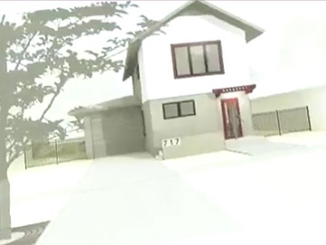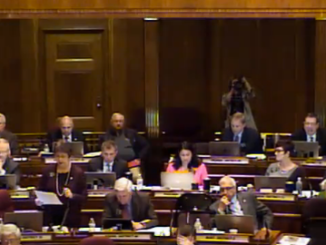
The 2019 Legislative Session is shaping up to be an interesting one. And it’s bills like Rep. Tom Kading’s (R – District 45) House Bill 1184 that make it so. Kading is undoubtedly one of the most conservative members of the North Dakota State Legislature. And if passed, this bill would eliminate what is known as “quick take eminent domain”.
As explained in this document prepared by Legislative Council in February 2016, not only does the Fifth Amendment to the United States Constitution address the issue of taking private property “for public use without just compensation” (i.e. eminent domain), but Article I, Section 16 of the North Dakota State Constitution does as well:
“Private property shall not be taken or damaged for public use without just compensation having been first made to, or paid into court for the owner, unless the owner chooses to accept annual payments as may be provided for by law. No right of way shall be appropriated to the use of any corporation until full compensation therefor be first made in money or ascertained and paid into court for the owner, unless the owner chooses annual payments as may be provided by law, irrespective of any benefit from any improvement proposed by such corporation. Compensation shall be ascertained by a jury, unless a jury be waived. When the state or any of its departments, agencies or political subdivisions seeks to acquire right of way, it may take possession upon making an offer to purchase and by depositing the amount of such offer with the clerk of the district court of the county wherein the right of way is located. The clerk shall immediately notify the owner of such deposit. The owner may thereupon appeal to the court in the manner provided by law, and may have a jury trial, unless a jury be waived, to determine the damages, which damages the owner may choose to accept in annual payments as may be provided for by law. Annual payments shall not be subject to escalator clauses but may be supplemented by interest earned.
“For purposes of this section, a public use or a public purpose does not include public benefits of economic development, including an increase in tax base, tax revenues, employment, or general economic health. Private property shall not be taken for the use of, or ownership by, any private individual or entity, unless that property is necessary for conducting a common carrier or utility business.”
According to Legislative Council, the first part of Section 16 was adopted as part of the original 1889 constitution. But the underlined portion — the “quick take” part — wasn’t added until 1956 when voters approved it as an amendment.
Perhaps it’s best at this point to explain what quick take eminent domain is. As described by this article published in the University of Detroit Journal of Urban Law:
“Municipal agencies have countered the inadequacies of the traditional method by employing an alternative ‘quick-take’ statute which permits the acquiring agency to take possession of the private property prior to a final determination of compensation for the property. This statutorily enforced transfer of not only title but possession of the property prior to a final adjudication of the respective rights arguably constitutes a deprivation of private property without due process of law.” (Emphasis Added)
Examples of this are currently written into the North Dakota State Century Code— in multiple sections. If passed, Rep. Kading’s bill would eliminate all of them and actually add a section that would prohibit the practice going forward:
“Notwithstanding any other provision of law, a state entity or political subdivision may not acquire private property through the use of quick take eminent domain.”
Short of amending the state constitution to remove the state’s authority in the matter — which is somewhat of a process — this is the only way to end quick take eminent domain in North Dakota. The constitutional authority would remain, but statutorily the state and all its political subdivisions would be prohibited from utilizing the practice going forward.
Kading’s choice to take this route is actually in harmony with a North Dakota Supreme Court ruling in Johnson v. Wells County Water Resource Board, 410 N.W.2d 525 (1987) in which they ruled:
“The power of eminent domain, however, lies dormant in the state until the Legislature by specific enactment designates the occasion, modes, and agencies by which it may be placed in operation.”
The issue of eminent domain itself has often been the subject of debate in the last 200-plus years. But the fact that North Dakota’s voters did the unthinkable in 1956 and voted to approve of the practice through constitutional amendment is no reason to continue allowing it.
The idea of the government taking someone’s property, and sorting out the details of due process later, is nothing short of un-American. Not only should the State Legislature pass this bill, but any legislator who votes against it should be removed from office. After all, such a practice should not be tolerated in a free society.
Sources:
- https://www.legis.nd.gov/assembly/66-2019/members/house/representative-tom-kading
- https://www.legis.nd.gov/assembly/66-2019/documents/19-0553-01000.pdf
- http://acuratings.conservative.org/wp-content/uploads/sites/5/2017/07/NorthDakota_2017_web-1.pdf
- https://www.legis.nd.gov/files/resource/committee-memorandum/17.9238.01000.pdf
- https://ackerman-ackerman.com/wp-content/uploads/2016/05/Consitutionality-of-Eminent-Domain-Quick-Take-Statutes.pdf





